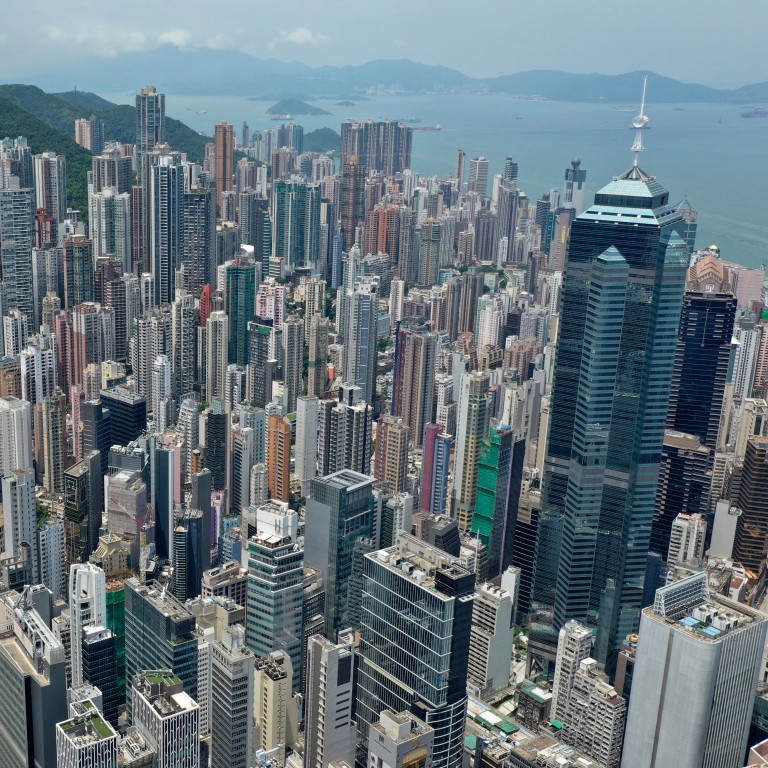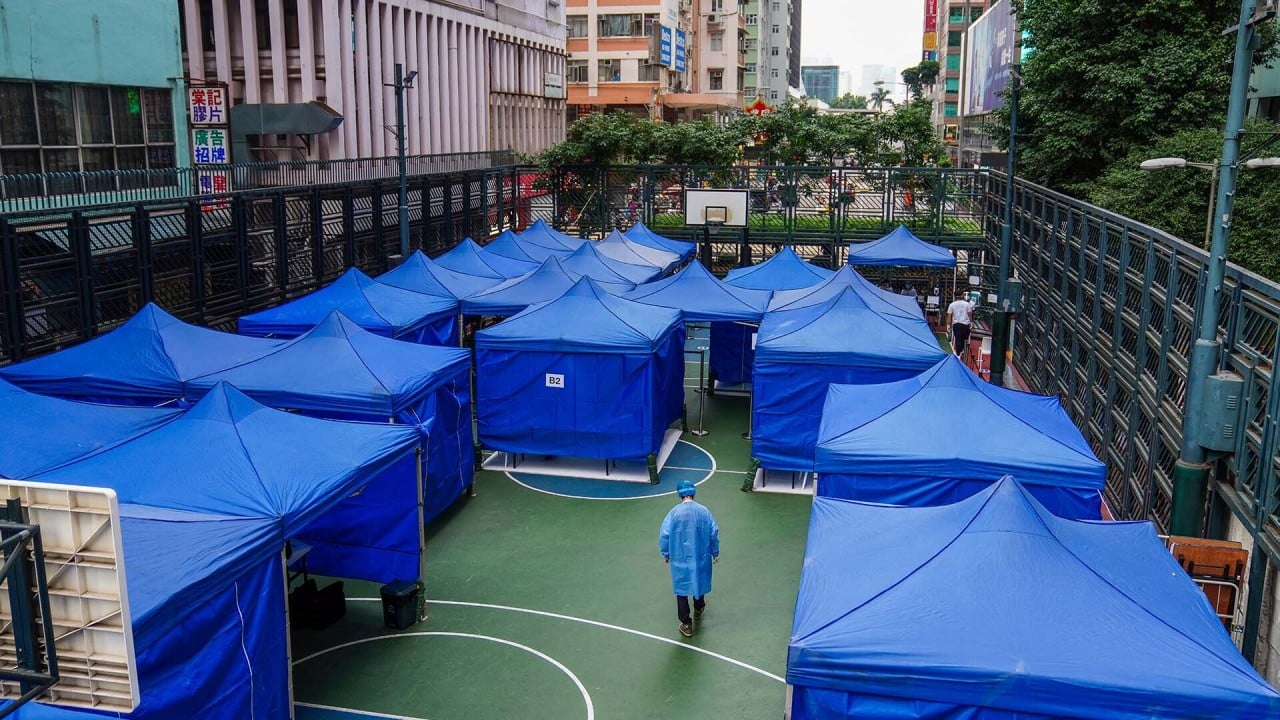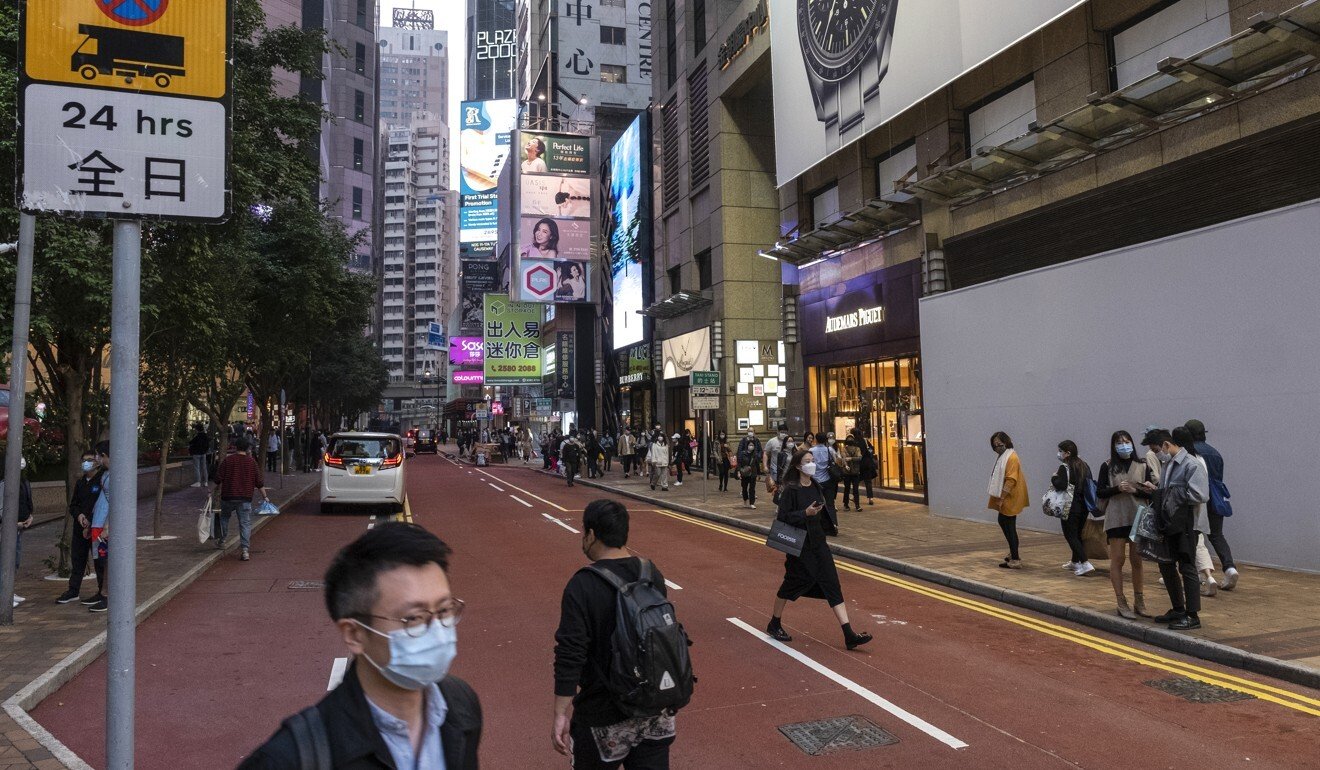
Hong Kong’s worst recession on record points to bleak outlook in 2021 for residential property and commercial real estate prices
- Mass market and luxury home prices are expected to drop between 5 and 10 per cent in 2021 on lower transaction volumes, say analysts
- The pandemic will affect the uptake of grade A offices, with Cushman & Wakefield predicting rents to fall between 11 and 16 per cent this year
The coronavirus pandemic will continue to weigh on all segments of Hong Kong’s property market this year. From mass housing to luxury residences, from offices to shops, no major segment will be spared from the recession and rising unemployment, analysts say.
A straw poll of 20 analysts, agencies and developers by the South China Morning Post on housing prices in 2021 showed six expect them to drop, seven were unsure. Only seven predicted outright gains.
“The uncertain economic and business outlook and weakness in labour market conditions are likely to impact mass residential severely despite very supportive borrowing costs and fundamental demand-supply imbalance,” said Harry Tan, head of research for real estate in Asia-Pacific at Nuveen. The firm is among the most pessimistic in the poll by calling a 5 to 10 per cent drop in mass residential prices in 2021.

02:02
Fourth wave of coronavirus cases in Hong Kong prompts tougher Covid-19 measures
“Although market activity is expected to pick up mildly when the Hong Kong-China border reopens, in times of high economic uncertainty, transaction volume will remain much lower than historic levels,” said Nelson Wong, head of research at the consultancy.
Tan of Nuveen sees volumes for both mass and luxury segments trending lower because of the “still very uncertain macro landscape”.
Under such a scenario, Cushman & Wakefield forecasts grade A office rents to fall between 11 and 16 per cent in 2021, managing director John Siu said.
“Competition among landlords will intensify as they begin marketing of several new office buildings set to launch in 2022,” Siu added. Price cuts generally follow as desperate landlords offer bigger discounts to attract tenants, he said.
Landlords will face a difficult choice between offering shops on short-term leases and new long-term leases at a significant discount to the previous rates, which in turn will affect shops’ valuation, analysts said. The new tenants looking to take up this space, most likely retailers of daily necessities and mid-range products, will have lower rental affordability, they added.
Meanwhile, the absence of inbound tourists because of Covid-19 has led to an increase in vacancy rates of shops in Causeway Bay and Central, which stands at over 15 per cent, said Martin Wong, associate director of research and consultancy in Greater China at Knight Frank. “Retail rents will continue to find bottom in 2021.”
Moody’s Investors Service expects the return of tourists to be “gradual” even if travel restrictions are lifted, given the general public’s sentiment around the pandemic. This factor and lingering economic uncertainty will continue to “constrain” the city’s retail sector over the next 12 months.
The rating company also said that the accelerated shift to online shopping because of Covid-19 could further reduce leasing demand from apparel and footwear retailers.

Despite the bleak outlook surrounding the property sector, investment appetite remains “solid” among private equity fund managers, who are scouting for opportunities to deploy capital, said Rosanna Tang, head of research at Colliers International.
“Defensive assets such as residential development sites, neighbourhood malls, strategic industrial assets and en-bloc commercial buildings remain popular among investors,” said Tang.
Additional reporting by Sandy Li, Cheryl Arcibal and Pearl Liu

